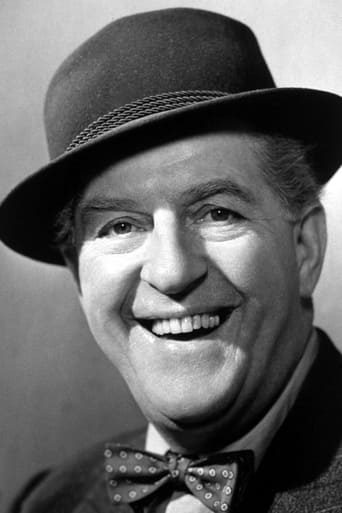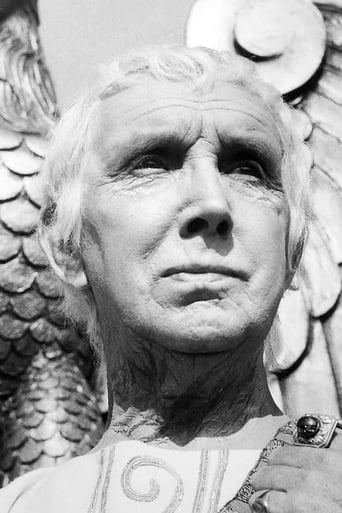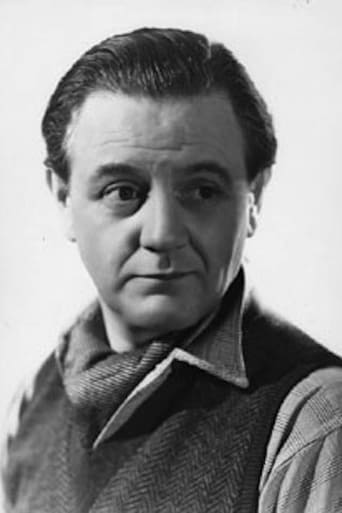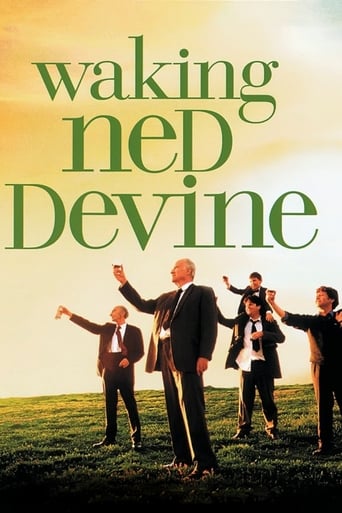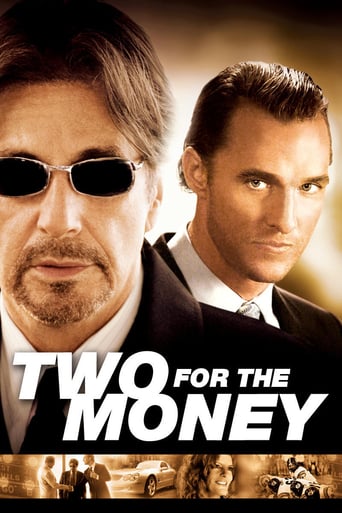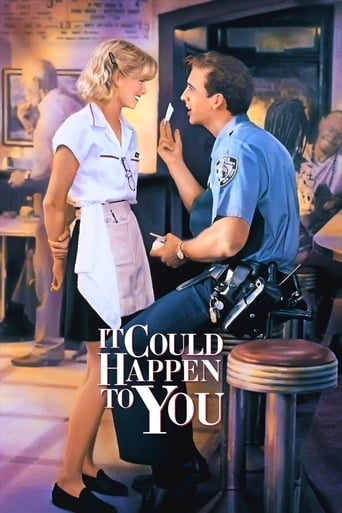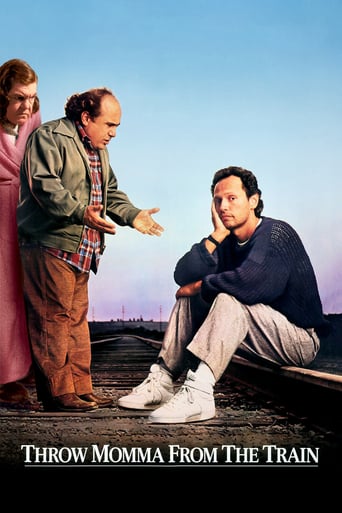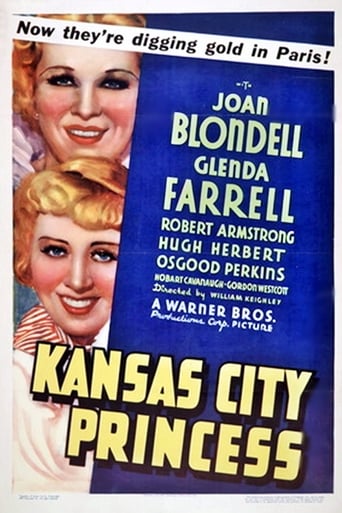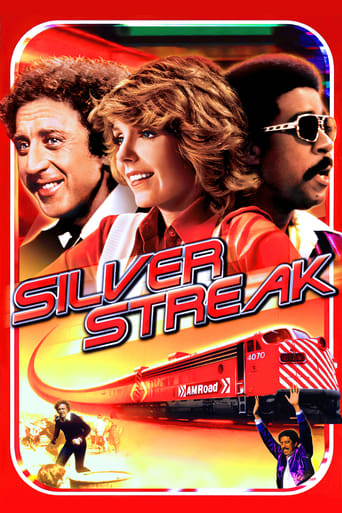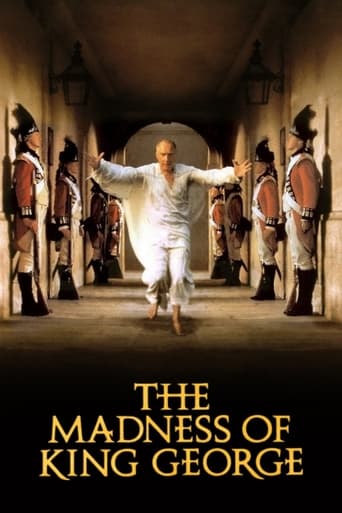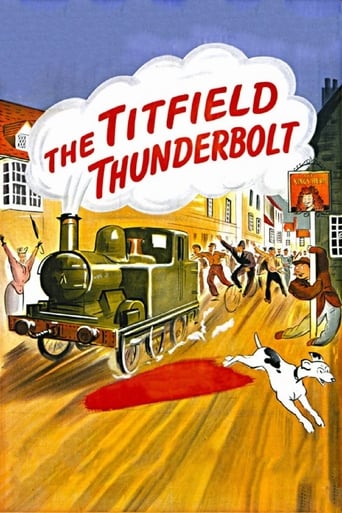
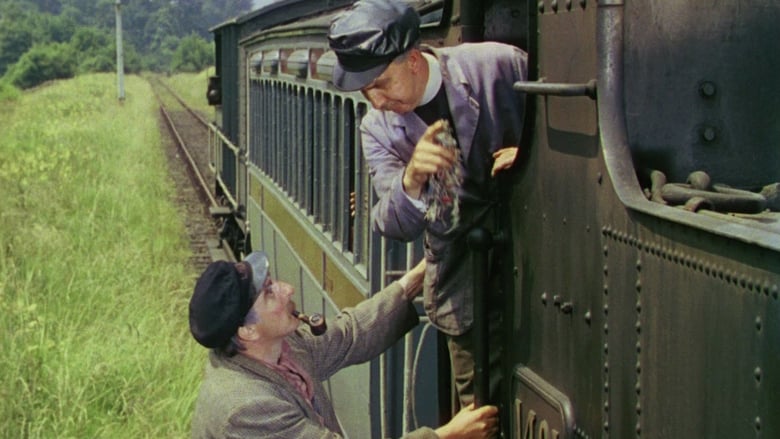
The Titfield Thunderbolt (1953)
When British Railways announce the closure of the Titfield to Mallingford branch line a group of local residents make a bid to run it themselves, backed by a monied member of the community who is attracted by the complete lack of licensing hours on trains. Unfortunately the local bus company starts to use methods that can hardly be seen as fair competition.
Watch Trailer
Cast
Similar titles
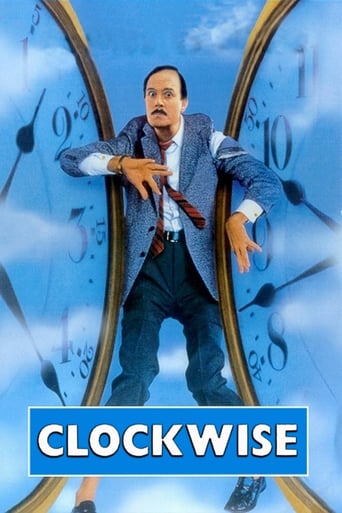
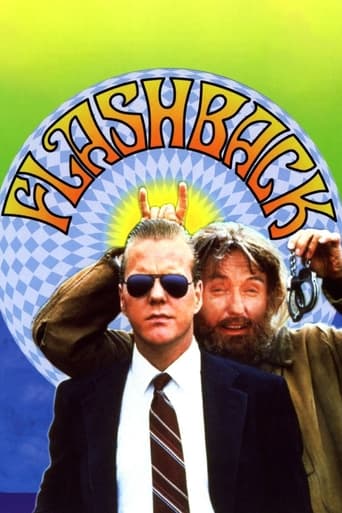
Reviews
You won't be disappointed!
Slow pace in the most part of the movie.
The performances transcend the film's tropes, grounding it in characters that feel more complete than this subgenre often produces.
It’s sentimental, ridiculously long and only occasionally funny
As THE TITFIELD THUNDERBOLT started, I was surprised to see that it was in colour - a first for the Ealing studio. It soon becomes apparent that story-wise this is very similar to the likes of PASSPORT TO PIMLICO, in showing the efforts of a small community in coming together and fighting back against government bureaucracy. The different is that the city confines of PIMLICO are swapped for something altogether more bucolic.The story - about the privatisation of a railway line - is slight stuff and really an excuse for lots of larking about with trains, steam engines, buses, and the like. It's a little like THE RAILWAY CHILDREN in that respect. As is usual for an Ealing film, the cast is packed with celebrated character actors including the likes of Sid James, Naunton Wayne, Stanley Holloway, and a youthful Hugh Griffith. The humour is full of warmth and flows naturally, and the wit is evident in the sheer level of care taken with both script and production.
(75%) A fine British comedy that is English as a rainy summer day. This really is a joy to watch with its fantastic pacing, eccentric characters, and a charming fun wit running right the way through. And despite this being incredibly twee with its chocolate box village, there is a rebellious spirit that bubbles to the surface that is present in many of these great Ealing films. It must be said this isn't what I'd call the funniest film of all time, or even the funniest Ealing film, but it's just so watchable and and likable, with the brilliant line from Stanley Holloway: "Is it a pleasant prison?" all making this a very worthy watch.
Watching The Titfield Thunderbolt I'm wondering if Paul Henning got the idea for Petticoat Junction from this film. Certainly the folks who wanted to keep that railroad that ran from Hooterville to Pixley were of the same mind that these rural British people had in keeping their railroad line operational.On Petticoat Junction that was a running plot line to keep the Hooterville Cannonball going. Here in Titfield the main transportation with the outside world is that railroad that runs from Titfield to Mallingford and back. The Labour government under Clement Attlee in the new post war Great Britain nationalized their railroads, but a loophole in that law will permit a private company to be organized if they can maintain the railroad up to certain standards.Now that's not sitting too well with folks that have franchised a bus line to be the new transport between Titfield and the wider world. So now we also have the elements of the plot of hundreds of westerns in the USA, the railroad versus the stagecoach. This one's done with a little more style.It's quite a crew of outraged citizens from Titfield that have taken this crusade up for many different motives. They range from the local vicar George Relph to the local squire Stanley Holloway to the local poacher Hugh Griffith. The ingenuity of the locals is really something to see as they overcome many disadvantages and some deliberate sabotage.The cinematography of the British countryside by their ace cameraman Jack Cardiff reminds me of The Quiet Man. Another reminder of The Quiet Man is the presence in the cast of Jack McGowran of the Abbey Theater players. You might not remember the name, but you can never forget McGowran who plays a toady like character here for the bus line in the same manner he was Victor McLaglen's factotum in The Quiet Man. With that squinty face of his, McGowran was born to play parts like that.The Titfield Thunderbolt both as a period satire of some of the problems that the new Socialist Great Britain was undergoing and as a comedic piece with some timeless comedy gags holds up well. It's a great credit to the Ealing Studios and the wonderful humor that they gave the post war United Kingdom and the world.
This delightful comedy would be a joy in black-and-white. In Technicolor it's a real treat. The vividly English landscapes are used imaginatively to augment the appeal of the trains themselves. Color is drawn upon inventively to set the moods for various scenes and to cast a wonderful spell of romance, of firmly delineated villains and purest-motived heroes in a classic tale of St George versus the dragon.T.E.B. Clarke's wittily observed, richly characterized script offers a wonderfully unlikely St George in the local vicar. His squire is the young squire himself, his champion a friendly bishop. The dragons are the local bus proprietors. Very fitting. I love trains, hate buses. Any movie that toes this line is going to get 100% of my vote anyway.But, additionally, the acting here is so winning, so endearing, so priceless. Not a single player is out of step. All have their opportunities even Naunton Wayne (in a more or less straight role) and Sid James (as a heavy) and all make the most of them. It's good to see George Relph (a noted actor on stage, Relph made only 14 movies between 1916 and 1959) in the leading role, though Stanley Holloway's fans may be a bit disappointed to find his contribution is comparatively small and lines up as more of a character part than that of a clown. Nonetheless, he does make the most of some delightfully amusing lines and bits of business and does share some glorious moments of inspired slapstick with Hugh Griffith (even if topped by Wensley Pithey's breathless recital of their collective misdemeanors).Producer Michael Truman and director Charles Crichton have obviously made a considerable effort to cast Clarke's wonderful parade of village types with just the right players. Gabrielle Brune, hardly a household name (she made only 21 films between 1930 and 1972, mostly in very small roles) seems ideal as the local hostelry's sympathetic barmaid. Similarly, television actor John Rudling (who made only five films of which this is the third), delivers some of the script's most telling lines with exactly the right tone of brusque officiousness. Of course, people like Reginald Beckwith as the stumped union man and Michael Trubshawe as the "I was about to add" public servant play much their usual characters. But they do it so well and with such precision, who's complaining? Crichton's direction rates as beautifully paced and deftly assured as ever, whilst Slocombe's wondrous photography comes over so pleasingly you really need to see the movie three or four times to appreciate its richness. Auric's score is a crowd-pleaser too, whilst Seth Holt's editing seems as polished as spun gold.Produced on an admirably lavish budget, The Titfield Thunderbolt can be summed up as one of the most brilliant, enduring gems of British comedy. A must for train buffs of course. But equally a superb entertainment for all of us who like to see individuals win against bureaucracy, underdogs defeat "progress".
